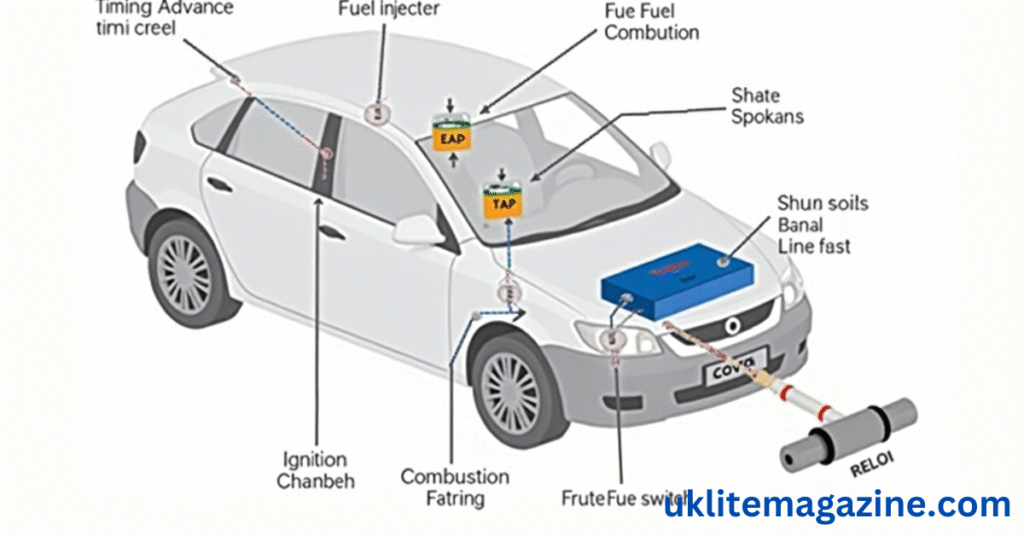In the world of automotive performance, ignition timing plays a crucial role. Whether you’re using petrol, LPG, or CNG, maintaining the correct timing ensures smooth operation and better efficiency. One key component that helps optimize this is the Timing Advance Processor (TAP). But what exactly is it—and how does it work?
What Is a Timing Advance Processor?
A Timing Advance Processor is an electronic device used primarily in vehicles converted to run on compressed natural gas (CNG) or liquefied petroleum gas (LPG). It helps adjust the ignition timing of the engine to compensate for the slower combustion rate of alternative fuels.
Why Is Timing Important in Engine Operation?
Ignition timing refers to the point at which the spark plug fires inside the combustion chamber. If this happens too early or too late, it can lead to engine knocking, loss of power, and poor fuel efficiency. Correct timing is essential, especially when switching from petrol to gas fuels like CNG or LPG.
How a Timing Advance Processor Works
When a vehicle switches to CNG or LPG, the combustion speed changes. The TAP adjusts the spark timing by sending signals to the vehicle’s Electronic Control Unit (ECU). It advances the spark so that combustion occurs at the ideal moment, improving fuel burn and engine performance.
Types of Timing Advance Processors
-
Analog TAPs: Simpler and more affordable; offer basic timing correction.
-
Digital TAPs: Offer precise control and compatibility with a wider range of ECUs.
-
Programmable TAPs: Allow custom tuning based on vehicle specifications.
Benefits of Using a Timing Advance Processor
-
Improved engine performance on CNG/LPG
-
Better fuel efficiency
-
Reduced engine knocking
-
Lower emissions
-
Longer engine life
Where It’s Commonly Used (CNG/LPG Conversion Kits)
TAPs are often included in dual-fuel conversion kits, especially in regions where CNG or LPG is widely used. Countries like India, Pakistan, and Italy frequently rely on TAPs in everyday vehicles to optimize performance.
Potential Drawbacks or Limitations
-
Not compatible with all car models
-
Requires proper installation and tuning
-
May interfere with OBD systems in modern cars
-
Adds extra cost to the fuel conversion
Overview of Timing Advance Processor
| Feature | Details |
|---|---|
| Purpose | Adjusts ignition timing for CNG/LPG |
| Works With | ECU and ignition system |
| Key Benefit | Better performance and fuel efficiency |
| Common Use | Dual-fuel vehicles (CNG/LPG) |
| Types Available | Analog, Digital, Programmable |
Conclusion
A Timing Advance Processor is a small but powerful component that ensures your vehicle runs efficiently when using alternative fuels. By optimizing ignition timing, it not only improves performance but also protects your engine in the long run. If you’re using or considering CNG/LPG, a TAP is a worthy investment.
Frequently Asked Questions (FAQs)
Q1: Is a Timing Advance Processor necessary for all CNG vehicles?
Not always, but it is highly recommended for vehicles that lose performance after conversion.
Q2: Can I install a TAP myself?
Professional installation is advised to avoid ECU issues or incorrect timing.
Q3: Does a TAP improve fuel mileage?
Yes, by optimizing combustion, it can improve mileage on CNG/LPG fuels.
Q4: Will a TAP affect my car’s warranty?
In some cases, installing aftermarket devices may void the warranty. Always check with your vehicle manufacturer.

